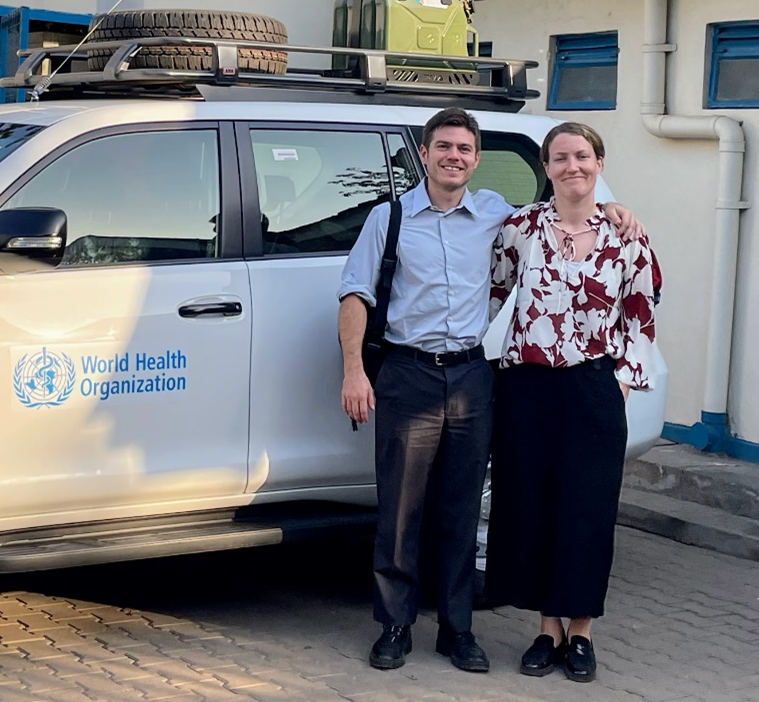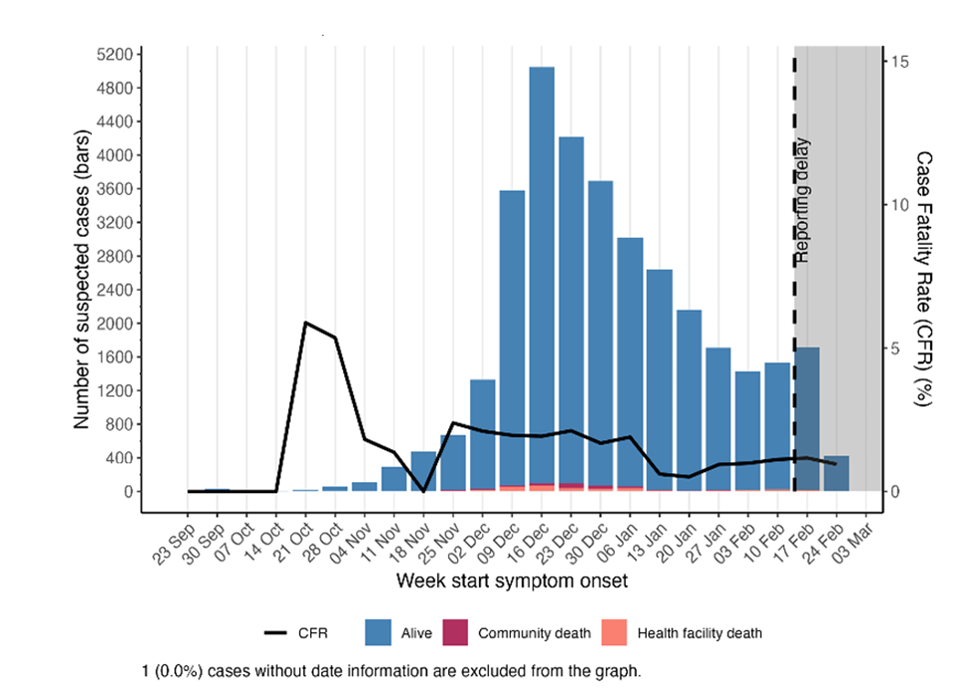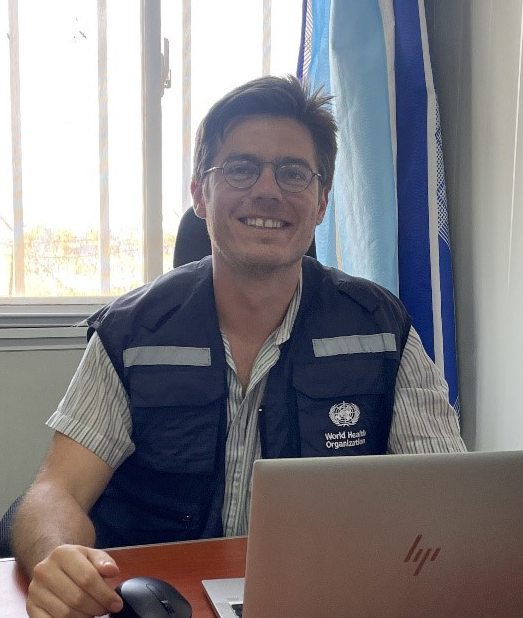Postcard from the field: deployment to South Sudan through the WHO Global Outbreak Alert and Response Network (GOARN)
In 2024-2025, South Sudan experienced its largest ever recorded outbreak of cholera. The first case was detected in September 2024 in Renk county, bordering Sudan. By mid-December, over 5 000 cases had been reported across 22 counties with the situation rapidly deteriorating due to poor water, hygiene and sanitation (WASH) infrastructure and large population movements resulting from conflict and flooding. On 18 December 2024, we, Ebba Rosendal, Instituto Nacional de Saúde Doutor Ricardo Jorge (INSA), Lisbon, Portugal, and Sebastian von Schreeb, Direção-Geral da Saúde (DGS), Lisbon, Portugal, were deployed to Juba, the capital of South Sudan, through the WHO Global Outbreak Alert and Response Network (GOARN), replacing a previously deployed EPIET fellow, Marta Bertran, who was supporting the WHO country office. The main objective was to support the Ministry of Health by performing daily epidemiological analyses to inform timely and data-driven response efforts, including effective case management, oral cholera vaccine (OCV) campaigns and prioritising areas for WASH interventions.

During the assignment, we performed the following activities:
- Surveillance and data analysis: we conducted daily epidemiological analyses of the cholera outbreak data, including compiling and cleaning line lists from affected areas, assessing trends, and identifying high-risk areas
- Risk mapping and information dissemination: we updated cholera risk assessments and supported information products on drivers of the outbreak and implemented response measures.
- Epidemiological investigations: we supported the design, revised the protocol and prepared data collection tools for a case-control study to identify risk factors for cholera infection to guide future prevention efforts.
- Developing pipeline for epidemiological analysis: building on the work by the previous EPIET fellow, we developed a semi-automated R-based pipeline for compiling, cleaning, analysing, and visualising epidemiological data to enable timely, data-driven decision-making.
- Capacity building: we provided on-the-job training to WHO and Ministry of Health staff in data management and analysis using Excel and R statistical software. We also facilitated enrolment in R courses for interested staff.
During our deployment from 18 December 2024 to 22 February 2025, South Sudan's cholera outbreak intensified, with cases peaking in late December 2024. By 1 March 2025, a total of 34 688 cases and 583 deaths were reported across 39 counties in nine states and one administrative area (Figure 1). Following the peak of the outbreak in December, a steady decline in the number of cases was observed during the deployment period, with 6 515 new cases and 85 deaths reported in February 2025, representing a 43% and 46% decrease in cases and deaths, respectively, compared with January 2025.

Since the start of the outbreak, the Ministry of Health, WHO, and other partners made substantial efforts to provide vaccination to affected counties. By 1 March 2025, the cumulative vaccinated population reached 3 385 780 (93% of the target population — representing everyone above the age of one year in counties approved for vaccination), with ongoing vaccination campaigns in four counties and an additional 1.1 million doses approved for eight additional counties with laboratory confirmed cholera cases [1].
 The outbreak response required adaptation to rapidly evolving challenges, including the logistical constraints that came with working in a resource-limited and unstable setting, especially in the field. The close collaboration between WHO and the Ministry of Health provided a direct understanding of how outbreak coordination and decision-making can be managed in a complex emergency context. The epidemiological analyses we prepared daily were given substantial attention during strategic level meetings at the Ministry of Health and enabled timely data-driven decision making. The prepared R-based pipeline, together with the R programming capacity built among both WHO and Ministry of Health staff provided a foundation for rapid analysis in future outbreaks of cholera and other diseases needing a rapid outbreak response. Despite challenging working conditions, such as restricted movement and long working hours, the good team dynamics on the ground, and the notion that our efforts had a direct impact on the response measures being implemented, made the deployment both rewarding and highly enjoyable.
The outbreak response required adaptation to rapidly evolving challenges, including the logistical constraints that came with working in a resource-limited and unstable setting, especially in the field. The close collaboration between WHO and the Ministry of Health provided a direct understanding of how outbreak coordination and decision-making can be managed in a complex emergency context. The epidemiological analyses we prepared daily were given substantial attention during strategic level meetings at the Ministry of Health and enabled timely data-driven decision making. The prepared R-based pipeline, together with the R programming capacity built among both WHO and Ministry of Health staff provided a foundation for rapid analysis in future outbreaks of cholera and other diseases needing a rapid outbreak response. Despite challenging working conditions, such as restricted movement and long working hours, the good team dynamics on the ground, and the notion that our efforts had a direct impact on the response measures being implemented, made the deployment both rewarding and highly enjoyable.
References
- World Health Organization. (2025). South Sudan Cholera Situation Report, Issue 18. Retrieved from https://www.afro.who.int/sites/default/files/2025-03/South%20Sudan%20Cholera%20Situation%20Report%2C%20Issue%20%2318%20.pdf




